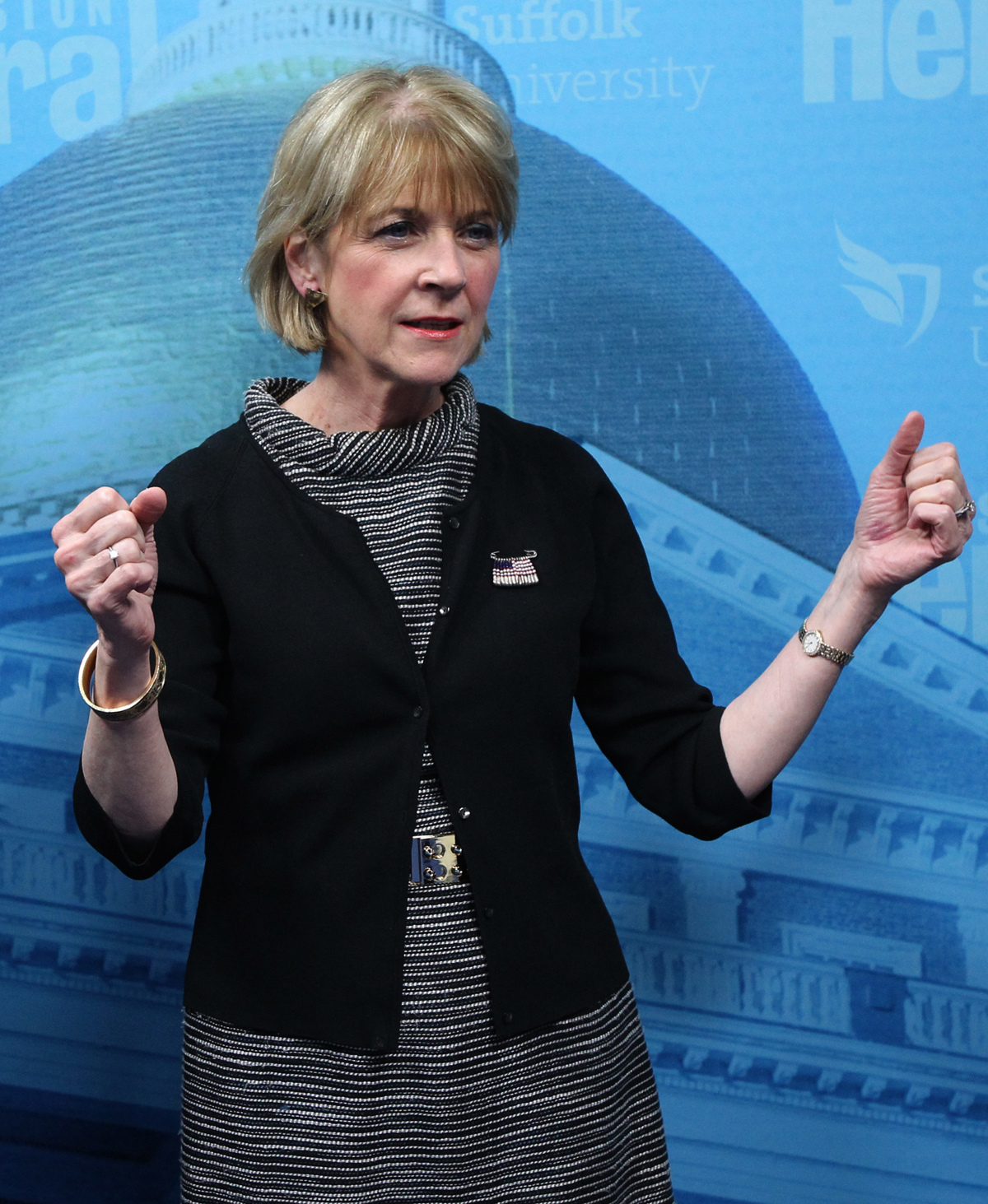MassDems Are Misogynistic, But Is That Their Problem With Martha Coakley?

Associated Press
Erin O’Brien has joined the blogging team at MassPoliticsProfs, and her first post is on a pet topic of mine: women in politics. O’Brien argues that the Massachusetts Democratic party establishment’s treatment of Martha Coakley is a symptom of a particular gender bias that results from a “good old boys” network protected from modernization because of single-party dominance.
I concur in part and dissent in part.
Like O’Brien, I strongly suspect that the strength of pre-existing party structures has a lot to do with advances toward gender parity in elected office. Back in the 1960s, pretty much all of political culture was about as male-dominated and chauvinistic as you would imagine. In much of the urban Northeast, including Massachusetts and Rhode Island, machine-type party politics was very strong when women began pushing into the professional world. That made it easier for the old guards to continue, in effect, selecting subsequent successors and perpetuating their Mad Men culture, consciously or not. The same was true in much of the South, where the power was shifting from Democratic to Republican dominance, but the strong-party systems were ingrained. By contrast, in much of the West and Midwest the political parties were less dominant and hierarchical, and it was easier for newcomers to crash the gates and change the culture. At least, that’s my theory.
So, yes, the Massachusetts Democratic party has been remarkably boy’s-clubby—10 years ago I asked then-chairman Philip Johnston what the party was doing to help women eventually crack into the (then) all-male congressional delegation, as it seemed to have never occurred to him. In many ways it remains so: the ranks of the state’s top Democratic campaign strategists, for example, are really, really, really male-dominated.
But, significant change is clearly happening. Not only has the party recently nominated Elizabeth Warren, Suzanne Bump, Martha Coakley, Katherine Clark, and Niki Tsongas for major openings; all of those except Bump were pretty strongly beneficiaries of that strong-party establishment support.
Where I would disagree with O’Brien, however, is when she posits that Democratic leaders and activists unfairly hold Coakley reponsible for the 2010 loss to Scott Brown, when the fault lies as much with them as with the AG. “Democratic Party leaders failed to produce the mobilization vital to activating the party faithful to vote on special election day,” O’Brien writes.
I agree with O’Brien, by the way, that Brown’s victory had much more to do with circumstances of the time than with her—and, that mobilizing the electorate was the way she could have, but failed to, overcome those circumstances.
The perception among those leaders and activists, however, was that they were largely shut out of providing that mobilization—by Coakley and her team. This might be wrong or overstated, but I can say that it’s not revisionist: I was hearing the complaints from many quarters during the campaign, and even before the realization hit that she could lose.
As I interpreted it at the time, the various leaders and activists—people who knew how to run certain areas or groups for the party—were willing to get to work. But the Coakley team viewed that as A) unnecessary, and B) ploys to get a piece of what Senator Coakley would have to dole out once in Washington, a pie that they did not want to share with latecomers to the cause. So, the Coakley team insisted on handling it all themselves. And didn’t get it done.
That left a lot of these folks blaming Coakley, with at least some legitimacy, of blowing it by not letting them do what they know how to do. So, they expected her afterward to recognize and apologize for this error—not just an error, but a personal affront and rejection. And they never felt that they got it.
That might not be reasonable, exactly, but it’s very consistent with the attitudes of the very self-important Massachusetts Democrartic party leaders and activists. This is exactly the kind of grudge that they would be expected to nurse for many election cycles, against man, woman or child.
I would also suggest that another not-insignificant part of the resistance among these party leaders to Coakley is a perception that she is still a bad campaigner who is likely to blow it against Charlie Baker. As one said to me recently: “You hear a lot about the new Charlie Baker; you’re not hearing about the new Martha Coakley.”


